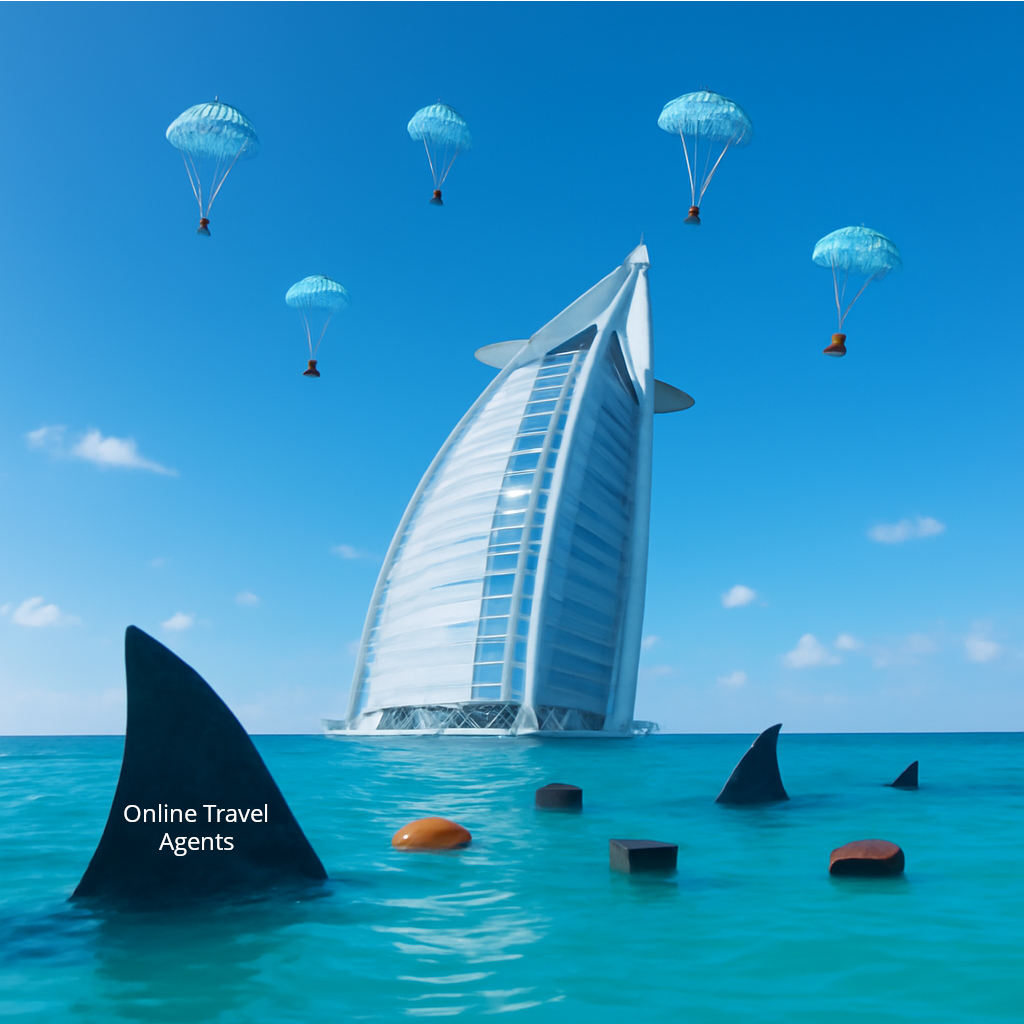The four questions every General Manager should be asking their Digital Marketing Teams
You are uniquely positioned within your hotel to ask the questions no-one wants to answer.
The goal of this document is to help you find out whether your hotel is getting taken advantage of by unscrupulous 3rd party Suppliers that are skimming your hard-earned revenue and charging you an OTA style commission fee for doing so.
As a General Manager we know that you don’t have the time for the intricacies of the digital marketing of your hotel. But we do know that you will want to get the best deal for it and you certainly don’t want to be taken advantage of.
That’s why we are sharing four questions that we hope can provide a financial analysis and determine whether you are getting a good deal, and whether the direct booking strategy you are currently running works.
Expect resistance when asking these questions, it’s going to make some digital marketing providers really quite uncomfortable.
1. ARE WE SURE OUR HOTEL’S MARKETING SERVICE IS COST EFFECTIVE?
A good starting point is to take all the revenue your marketing service has delivered and divide it by the total fees charged for bringing that revenue. You will end up with a figure that tells you the overall cost of your marketing service. The term used for the analysis is the Marketing Expense Ratio (MER), and it is effective because if you know OTAs deliver bookings at a cost of 18%-24% and your MER for digital is 6%, it is a helpful and easily understood reference indicator of performance. The MER changes slightly from one hotel to the next but it should always be at least 50 percent cheaper than the commission being charged to you by an OTA.
2. ARE WE SURE PAYING DIGITAL MARKETING TIED TO OUR REVENUE, IS THE BEST MODEL? (IT’S NOT!)
We see booking engines and big successful travel companies offering hotel’s more of the same: a commission model on every booking delivered. You know this isn’t the best model, but perhaps you don’t have the resources to run these in-house any other way. In reality it’s actually easier than it was in the past.
If you have a nagging fear that your hotel could be paying too much commission on these types of services, you’re right to think that.
For example: A hotel earning €60,000 in revenue per month via Google Ads, and being charged a 14% MER on these bookings will pay €8,400 in fees. That’s €108,000 in fees a year! By contrast hotels using Internet Affected’s service will see the cost of those bookings delivered with a 3%-7% MER. In this example that’s a saving of more than €50,000 a year.
If your hotel is in this reality it ends up paying a third-party – in this case their booking engine or travel provider – to essentially serve them an OTA commission model on business they could own themselves using our service.
So, the question to ask your team is this: have we tested what our real-world paid-search advertising costs would be if we managed this directly instead of via our booking engine or a performance marketing agency where their fees our linked to our revenue? You should try because you could find that your channel costs are actually nearer 3% MER than 14% commission on revenue.
3. HOW CAN WE TRUST WHAT OUR PROVIDER IS TELLING US?
We all know how important trust is in a relationship, and with over 12 years working for hotels we’ve also seen a lot of dodgy 3rd party operators claiming to be a Partner while skimming revenues off hotels simply because they don’t have the expertise in-house to dissect what’s happening to their online revenues. That’s part of our service, to stop hotels getting take advantage of by these practices, we care about our customers.
We see this happening frequently in the display remarketing space - particularly where a hotel lets a third-party run display advertising using the Google Display Network (famously poor at revenue delivery), and the hotel is then charged on bookings arriving through those adverts.
The solution? Tell the companies managing this service that you will only pay commission on bookings that can be shown to have arrived via your hotel’s Google Analytics account and that no other way is currently acceptable. They can add UTM tracking codes or even ask your Revenue Manager for a unique booking engine rate code to use in their campaigns so you can measure better the revenue they are bringing you.
Watch Account Managers at these companies attempt to convince you otherwise, and then watch your monthly commissions for the service drop by five or ten-fold.
4. ARE WE SEEING MORE DIRECT BOOKINGS WITH THIS NEW SERVICE?
You may or may not have heard of conversion rate optimization (CRO) - long touted in digital marketing as a way to gauge how efficiently your hotel converts passive visitors into active leads. But it’s a measure of efficiency nothing more. It does not speak to the effectiveness of the longer-term direct booking strategy your hotel is running - CRO doesn’t answer the question: is it working? For that, a far better metric to look at is conversion volume optimization (CVO), where you measure the increase in bookings to the hotel over two different periods: before the service started and while the services are being run.
Conversion volume optimization cuts through the glossy presentations and vague vanity metrics sometimes served up to hotels as proof of the value added of marketing services. To answer a more fundamental question: does the strategy work, are we driving more direct or not?
We hope these four questions can help you get one-time answers and peace of mind on how well your current digital marketing provider is working for your hotel.
If you’ve asked the questions and the answers aren’t coming back with the clarity you might expect, reach out and we would be happy to provide analysis for your hotel.
About the Author
Glyn Spencer Hopkins is the owner of Internet Affected and has been working exclusively with hotels for over a decade.
Internet Affected provides web marketing services tailored to the individual personalities of hotels; a complete range of digital services designed to help them take back ownership of their hotel brand from the OTAs. Specialized marketing solutions to increase guest loyalty, food & beverage bookings, events and wedding inquiries, clearly reported in straightforward language.











